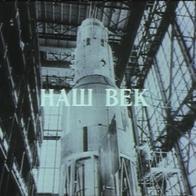Artavazd Peleshian
dal 31/3/2004 al 25/4/2004
Segnalato da
31/3/2004
Artavazd Peleshian
Kunsthalle Wien, Wien
Our Century. 'In my films, as I see it, there is not a single scene, not a single image, that would express a particular idea. I aim for something completely different: to create, through film, an emotional field of meaning'.(Artavazd Peleshian) With a selection of three of his works, Kunsthalle Wien in cooperation with the Ursula Blickle Foundation introduces the cinematic oeuvre of the Armenian filmmaker Artavazd Peleshian (b. 1938)

Our Century
In my films, as I see it, there is not a single scene, not a single image, that would express a particular idea. I aim for something completely different: to create, through film, an emotional field of meaning.( Artavazd Peleshian)
With a selection of three of his works, Kunsthalle Wien in cooperation with the Ursula Blickle Foundation introduces the cinematic oeuvre of the Armenian filmmaker Artavazd Peleshian (b. 1938) to audiences in both Austria and Germany. Peleshian s films have been hailed by the cognoscenti as belonging among the most influential works of Russian documentary cinema, and have been championed by luminaries such as Jean Luc Godard since at least the late 1980s. Even so, the eleven short films comprising the total output of the artist, who today lives a secluded life in Moscow, have remained outside the ken of audiences knowledgeable about matters of art. A curious fact, even considering that Peleshian s works are regularly shown at film festivals and that he has found appreciation certainly within an art context since the mid 1990s. Thus it was that Paul Virilio recently gave pride of place to Peleshian s most comprehensive work, Mer Dare/Our Century (1982/90, b/w, 50/30min), in the exhibition Ce qui arrive at the Paris Cartier Foundation. Our Century is an impressive black and white epic covering the dreams and nightmares of civilisation s progress in the 20th century. It is a work that almost seems like an illustration of Hannah Arendt s famous 1968 dictum that progress and catastrophe seem to be merely two sides of the same coin. At the centre of events, as always, stands Man facing the vicissitudes of political, historical and social change. Vremena Goda/The Seasons (1972 75, b/w, 29min) impressively captures scenes of everyday life from Armenia, caught between progress and tradition, a life that continues to be dominated by a subjection to nature s primeval forces. The short film, Obitateli/The Inhabitants (1970, b/w, 10min) taking its images in part from archival material and partly from original footage, shows animals of the steppe on the run from some indefinable threat. On a metaphorical level, it is a film about the conflict between nature and civilisation. In Peleshian s documentary films, alternating as they do between poetry and the quotidian, images and sounds enter into an impressive overall composition, an amalgamation of influences placing Peleshian in line with Dziga Vertov and Sergei Eisenstein as one of the all time greats of Russian filmmaking. Peleshian works with an editing technique developed by himself, which he describes as distance montage , allowing for suspenseful sequences of images and changes in direction while co involving the rhythmical power of music. His visual language and approach find their reverberations in contemporary art.
Curator: Gerald Matt
As a companion to the exhibition a hardcover catalogue I(German and English version), each at 432 p., will be publ. by Kerber Verlag, countless pictures, excerpts from shooting scripts, contributions by Artavazd Peleshian, Constantin Wulff, Franois Niney, Paul Virilio, an Interview between Jean Luc Godard and Artavazd Peleshian. ISBN 3 936646 60 0; Euro 32,50
Press conference: Thursday, 1 April 2004, 10 am
Opening: Thursday, 1 April 2004, 7 pm
daily 10 am 7 pm, Thu 10 am 10 pm, Wed closed
Information und photographic materials: Claudia Bauer, KUNSTHALLE wien, office: Museumsplatz 1, A 1070 Wien Phone: +43 1 521 89 1222, fax: +43 1 521 89 1220
KUNSTHALLE wien - hall 1, Museumsplatz 1, 1070 Vienna, Infoline +43 1 52189 33



